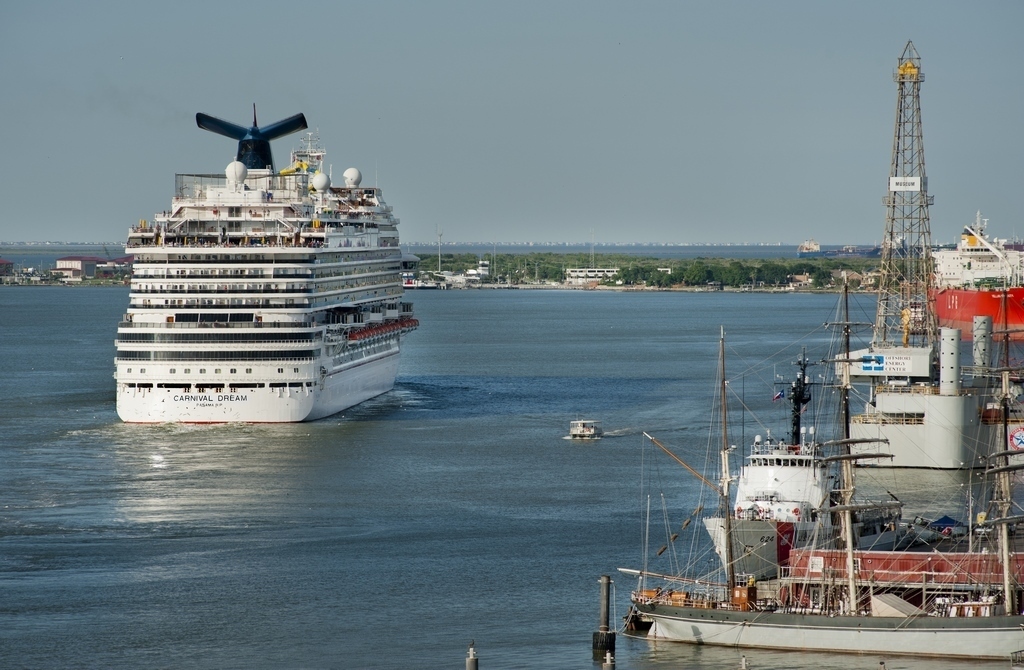Carnival Corporation has released its ninth annual sustainability report, detailing the key initiatives and progress made in 2018 toward its 2020 sustainability performance goals.
The company reported that it achieved its 25% carbon reduction goal three years ahead of schedule in 2017 and made additional progress on that goal in 2018. As part of its ongoing strategy to reduce carbon emissions, Carnival introduced the AIDAnova in December 2018 the world’s first cruise ship able to be powered by LNG. Looking to the future, the company stated that it continues to chart its sustainability journey, using the United Nation’s Sustainable Development Goals as a framework to develop a new set of goals for 2030 to improve environmental management, energy efficiency, health, safety and well-being objectives.
In 2018 Carnival also launched Operation Oceans Alive, described as a company-wide internal effort to ensure that all employees receive proper environmental education, training and oversight, while continuing the corporation’s commitment to protecting the oceans, seas and destinations in which it operates.
Carnival first shared its 2020 sustainability goals in 2015, identifying 10 key objectives, including reducing its carbon footprint, improving ships’ air emissions, reducing waste generation, improving water use efficiency, and supporting guests, crew members and local communities.
Carnival listed its accomplishments as follows:
Carbon Footprint: Achieved 27.6% reduction in CO2 intensity relative to 2005 baseline.
Advanced Air Quality Systems: 74% of its fleet is equipped with Advanced Air Quality Systems (scrubbers), capable of removing virtually all of the sulfur from ships’ engine exhaust, enabling cleaner overall air emissions.
Cold Ironing: 46% of its fleet is equipped with capability to use shoreside electric power while the ship is docked, where this option is available.
Advanced Waste Water Purification Systems: Increased coverage of fleet-wide capacity by 8.6 percentage points from 2014 baseline. Together, the company stated, it’s standard and AWWPS systems meet and/or exceed water treatment requirements established by the International Maritime Organization and national and local authorities.
Waste Reduction: Reduced non-recycled waste generated by shipboard operations by 3.8% relative to 2016 baseline. In 2018, the company started an initiative to evaluate its collective use of non-essential single-use plastic items and alternative options available in the market, with the goal of significantly reducing single-use plastics across the global fleet.
Water Efficiency: Improved water use efficiency of shipboard operations by 4.8% relative to 2010 baseline to a rate of 59.6 gallons per person per day, versus the U.S. national average of 90 gallons per person per day.
Carnival said it is also leading the industry having introduced the first LNG-ship (AIDAnova) and with an additional 10 LNG-fueled vessels due for delivery between 2019 and 2025 for the Costa, AIDA, P&O (UK), Carnival and Princess brands.
In addition, Carnival claimed it has also led the cruise industry in developing Advanced Air Quality Systems for marine application on cruise ships. Through an estimated $500 million investment to date, the company plans to deploy the systems on more than 85 ships across its global fleet by 2020. According to Carnival, independent testing has confirmed that the system outperform low-sulfur fuel alternatives, such as marine gasoil (MGO), in providing cleaner overall air emissions from ship operations at port and at sea without impacting the marine environment in full compliance with the International Maritime Organization’s (IMO) 2020 regulations for sulfur emissions.
Also, according a prepared statement, as part of its company-wide commitment to protecting the oceans, seas and destinations in which it operates, Carnival has made additional strides to support the people and communities in the more than 700 ports visited by its global fleet. Seeking to positively contribute to the social, environmental and economic wellbeing of these communities, the company said it works with local governments, tourism organizations, nonprofit groups and other community stakeholders to invest in the ports of call its ships visit and to support healthy, sustainable development.
Moreover, Carnival stated that it is committed to building a diverse and inclusive workforce, employing people from around the world and hiring people based on the quality of their experience, skills, education, and character, without regard for their identification with any group or classification of people.





